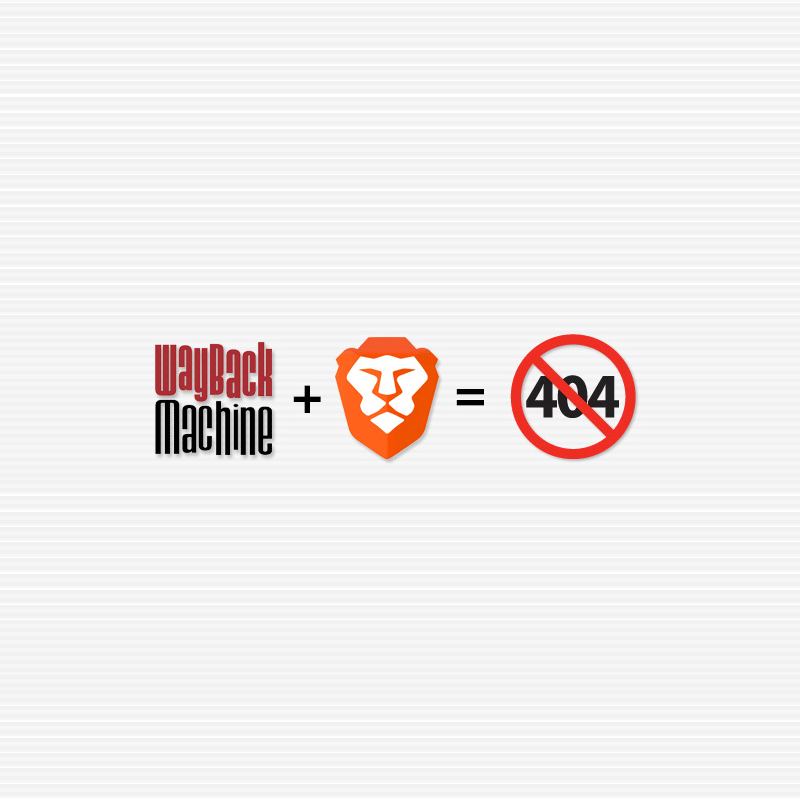
It can be frustrating for users of the web when visiting a web page and find that the page has an error.
Error 404 is the most common error, and it means that the page is not available because it is either down or removed. Brave is a privacy-focused browser that competes against Chrome and Firefox, and here it can automatically redirect users to have a peek into pages that were eliminated from the web.
To make this happen, Brave has partnered with The Internet Archive, or the non-profit digital library Archive.org, to bring its Wayback Machine to its users.
The feature is initially available through version 1.4 of Brave's desktop browser.
The feature also works for numerous other errors, as explained by The Internet Archive on its blog post:

With the collaboration, Brave users can immediately gain access to archived record of ‘missing’ pages on the internet through Wayback Machine embedded into to the browser.
So if users visit a missing page using Brave, the browser will generate a notification that reads:
“Sorry, that page is missing. Do you want to check if a saved version is available on the Wayback Machine?”
Clicking on the prompt will take users to the archived version of the page, where they can then scroll through different snapshots of the page taken over time. This should certainly make things easier for them to find information that has been removed from the internet, whether it was intentionally taken down or just disappeared by accident.
Users of Chrome, Safari, and Firefox have yet to have this feature embedded to the browsers. However, The Internet Archive has dedicated extensions for the browsers which should do the exact same thing.
The Wayback Machine was established back in 1996, with the goal to create an everlasting access to the internet's contents regardless what.
Although there’s no guarantee that a missing page has been archived by the Wayback Machine, The Internet Archive noted that the Wayback Machine has archived over 900 billion URLs and more than 400 billion web pages to date, and continues to add millions of more pages every single day.
This collaboration between Brave and The Internet Archive is not the first between the two.
In 2017 for example, The Internet Archive announced its support for Brave's micropayments system, permitting Brave users to anonymously tip their preferred websites with cryptocurrencies.
Then in 2019, The Internet Archive shared an update about that effort, where it received tips equivalent to $2500 in the form of Brave’s Basic Attention Token (BAT).
"We appreciate how Brave continues to innovate and deliver new value and services through their browser," the organization said.
And as users’ online anonymity has been more frequently spoken about, Brave browser is increasing its popularity across the globe. And here, The Internet Archive praised the browser by saying that:
